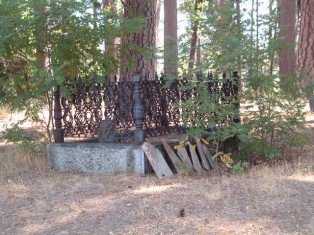Tombstones, like the one to your left, dot the western landscape. Many settlers died traveling over the plains. Some of those brave souls had doctors to tend to them and they still died. That’s because the country doctors of old weren’t that great. In truth, many of the so-called physicians that traveled West with the wagon trains were actually no more than venturesome prescribers. Because their diagnosis was based on guesswork their therapy was totally unreliable. Sometimes it cured – often it killed. All things being relative, the compression with today may seem unfair, but even allowing for the state of the art during the 1860s through the 1890s general practice in the United States was backward, commercial and often fraudulent. The lack of education and proper licensing exposed the sick to hordes of ignoramuses masquerading as doctors. More a trade than a profession, medicine attracted not the sons of the elite-who preferred law or theology-but mediocrities who saw a chance to get rich quickly. And even this was not enough to satisfy one graduate, who declared, “Hell if I hadda knowed a feller had to git up every night I would never have started to learn doctoring.” In the latter half of the nineteenth century there were 460 “medical schools,” most of them private enterprises run by practitioners who were less concerned with standards than tuition. Students were required to take courses of two 4-to-6-month terms at about $60 a term, and often the second term was a verbatim repetition of the first. Frontier doctors got paid $.50 for house calls. Some were paid off in jam or poultry. At one time America was known as a “bastion of medical humbug,” a reputation that prompted Oliver Wendell Holmes to declare: “If the whole materia medica as now used could be sunk to the bottom of the sea, it would be all the better for mankind, and all the worse for the fishes.” Of course we’ve come a long way since then. An example of how fabulous some doctors are now of days is Doctor Thomas Borsky of Grass Valley, California. Through his kindness and generosity my brother Rick will now have eyeglasses. Rick has been struggling with his eyesight for years and contrary to what one might see in movies or television, there are few doctors in prison and those that are associated with the facility don’t care about the patients. Now, if I could at long last get Rick some teeth, he’d be a least able to eat solid food. If I had his dental records from twelve years ago I could have dentures made, but Rick’s ex-wife took his files from the office and destroyed them. No matter how good doctors become or how many medical advances are made there will still be no way to cure a demented soul like hers.
Follow Me
© 2025 Chris Enss | Privacy Policy | Design by Winter Street Design Group | Login


